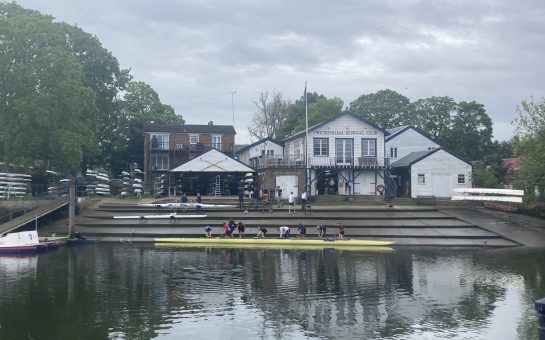Richmond Council has taken action to remove the Permitted Development Rights (PDR) that have been introduced by the Government for commercial buildings.
This comes months after the council criticised the Government for these plans in February.
The new planning rules mean that commercial premises such as shops, cafes, offices and gyms could be converted to houses or flats without the need for planning permission.
Town centres, high streets and local shopping parades are among the buildings that were at risk until the council appealed to the Secretary of State to put an Article 4 Direction in place to protect them instead.

Cllr Julia Neden-Watts, the Chair of Richmond’s Environment, Sustainability, Culture and Sports Committee, said: “Businesses in the borough’s town centres, high streets and local centres are working hard to recover from the COVID-19 pandemic.
“The Government’s new Permitted Development Right undermines this recovery.
“If shops and services give way to higher value residential use, the effect will be very damaging to communities.”
Although there is still a need for the council’s prior approval, PDR gives very limited grounds for the refusal of development applications and does not allow the council to consider impacts on vibrancy, vitality and viability.
The Article 4 Direction was made on 30 July 2021 but will not come into effect until 30 July 2022.
It applies to 67 designated areas or specific properties within the borough including the Richmond and Twickenham town centres.

Cllr Neden-Watts added: “The COVID pandemic has brought the importance of our local centres and parades to the forefront.
“Our consultations show that the borough’s centres and parades are very much valued by those who use them.”
In 2012, the Government first extended permission development so that offices could be turned into residential buildings without planning permission.
Now, local businesses are vulnerable to similar changes where Article 4 Directions have not been applied.
Cllr Pamela Fleming, Joint Deputy Leader of the Conservative Party Group said: “Richmond’s high streets aren’t owned by the council.
“It’s down to what landlords want to do – some would want to develop the properties to residential and people may not be so pleased about it.
“Some landlords may well see that they’d like to change, but that could drastically alter the character of the high street.”
Additionally, many buildings that are converted from office to residential without going through the planning process do not meet environmental, refuse, recycling facility or other standards required through planning policies.
Richmond council officers carried out evidence studies for the Article 4 Direction application as without good evidence they can be refused by the Secretary of State.
Cllr Fleming added: “Local businesses want to be protected, and planning permission should remain in the hands of local people.”
These announcements come in the wake of the government’s upcoming planning bill.
As read in the Queen’s Speech on 11 May, the bill aims to build more homes across the country, increase people’s freedom to build their own properties, and improve renters’ rights.
Cllr Neden-Watts said: “Without planning oversight, the Council will be unable to ensure that social infrastructure and support services are sufficient to cope with an increase in people living in an area, or that new housing does not negatively impact the local area or existing communities.”
Representations on the Article 4 Direction made on 30 July 2021 can be made until 24 September 2021 and you can read further information here.
Photo credit: Richmond Council




